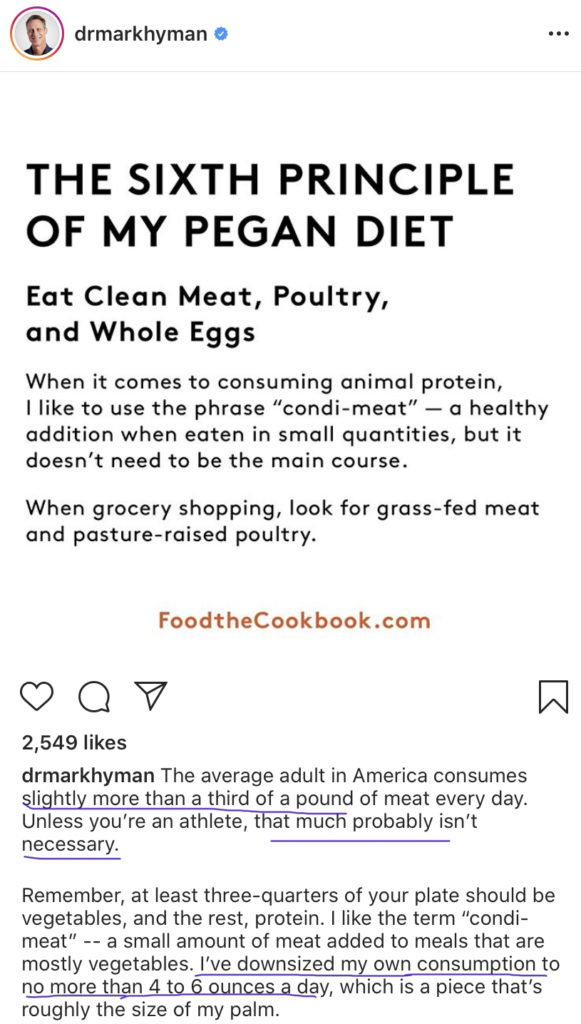I recently bought Dr. Mark Hyman’s latest book Food What the Heck Should I Cook? because in general I think his Pegan Style diet, combining the best of paleo and plant based philosophies, is a good starting point for many people looking to improve their eating.
But lately I have been seeing some inconsistencies in his postings about his way of eating. For example, in this Instagram post of his (underlines added by me) notice the inconsistency between what he indicates is too much meat vs his recommended amount, keeping in mind that 1/3 lb is ~5 oz:

So that’s a little unclear; is 4-6 oz/day too much? What defines “athlete”? There is a spectrum of activity levels from couch potato to Olympian.
On pages 22-23 of his cookbook, he writes some of his thoughts on a vegan diet. As Mark notes, and I agree, the ideal form of a vegan diet is whole food plant based, consisting of real whole plant foods and not a bunch of manufactured processed soy hot dogs, vegan donuts, and sugar-filled dairy free ice cream.
Mark seems to take issue with getting enough protein on a whole food plant based lifestyle: “It takes 3 cups of beans to get the amount of protein from a 6-ounce piece of chicken. And those 3 cups of beans contain a whopping 348 grams of carbs (although a good portion come from fiber)…Considering 70 percent of Americans are overweight and 50 percent have pre-diabetes or type 2 diabetes, high carbohydrate diets are a big problem.”
I do not think most overweight/obese and/or type 2 diabetic people got there by eating whole plant based foods like beans. It’s from eating refined, processed foods especially refined carbohydrates and added sugars, along with various other lifestyle components. Also, quite a few people seem to lose weight on whole food plant based diets. I personally went whole food plant based awhile ago, using Joel Fuhrman’s Eat to Live as a guideline, and spontaneously dropped ~10 lbs.
Mark’s arguments do not convince me that whole food dietary carbohydrates in the context of an overall healthy lifestyle (good sleep, exercise, attempts to minimize stress, no smoking, no alcohol, etc) should be strictly limited/avoided. Some exceptions/modifications may be necessary for certain populations, however.